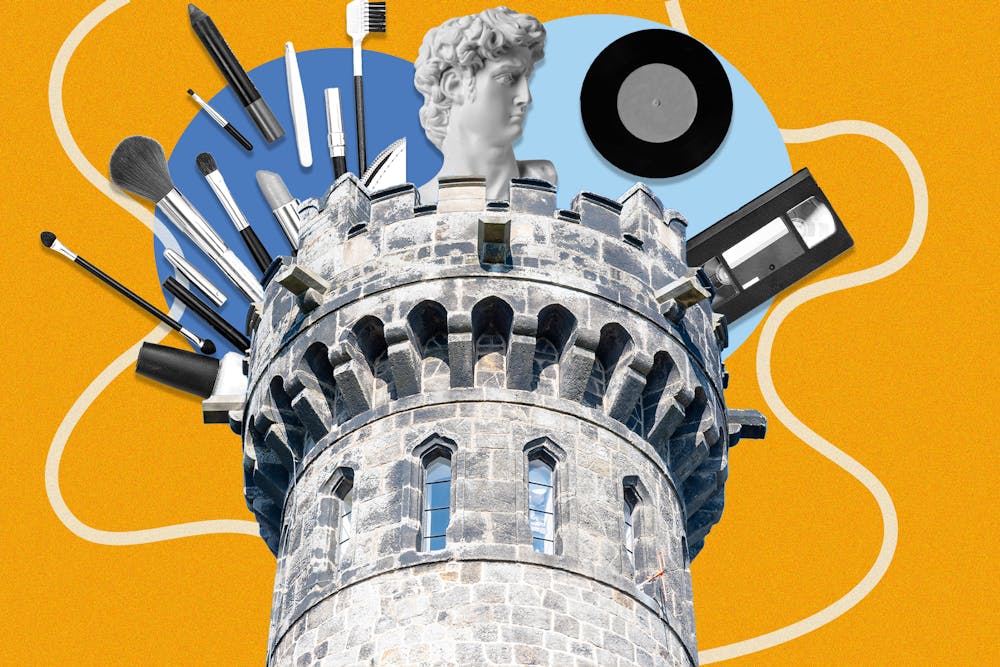For centuries, people have been using fashion, decor, music or art as an outlet for their identity and self-expression. The things you wear and the hobbies you have reflect the way others see your personality. However, those who have elitist opinions about their identity harm this system.
Gatekeeping is trending — it’s everywhere and hard to avoid. From shoes to food recipes to music, social media platforms only escalate these movements further.
The increased influence of TikTok and other social media platforms in 2020 during the pandemic elevated the prevalence of gatekeeping. It became far more common for people to post their everyday lives, including their routines and hobbies. This came with scrutiny, as creators weren’t saying where they got their vintage skirt or what new skincare brand they were using.
Tumblr even coined the phrase “Gaslight, Gatekeep, Girlboss” in 2021 to parody the mainstream phrase “Live, Laugh, Love.” This was commonly used as a meme to promote these familiar slang terms and actions. Following this, Vogue named gatekeeping one of their “words of the year” in 2022.
Yet, does someone else liking or having the same things as you diminish the value of it? It seems like a silly question, but this is ultimately the reason people gatekeep.
In a more common example, it seems every time I get on social media, someone is discussing their love for their favorite musical artist — and also receiving backlash for it.
“Have you even listened to their first album that was never released?” “Which song of theirs is your favorite?” When you reluctantly answer, people often brush it off, claiming you’re too “mainstream” or that all of the songs that you listen to are only the artist's most popular.
It’s hard to get on TikTok without seeing comments like “TikTok is going to ruin this artist.” But I can't help but wonder: why wouldn’t you want an artist to gain support, regardless of where it comes from? TikTok encourages creators to generate revenue — even if it is through short, 15-second sounds — which just enhances their success. The app hosts many of today’s trends and fads and is an important cultural force. Songs that trend on TikTok are charting on the Billboard Hot 100 or the Spotify Viral 50. A song becoming popular, regardless of how, doesn’t take away from its quality.
People try to keep their favorite “underground” artists unpopular, but in reality, they’re only hurting the artists they claim to support. Other people liking artists doesn’t make them less special, just more successful. That means more tours, more interactive interviews, more widespread content, more merch and so on. As the artist grows, so do opportunities to engage with them.



